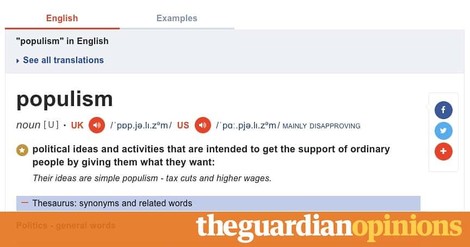Your podcast discovery platform
Curious minds select the most fascinating podcasts from around the world. Discover hand-piqd audio recommendations on your favorite topics.

piqer for: Globalization and politics Global finds
Sezin Öney, originally from Turkey, is based in Budapest and Istanbul. She her journalism career as a foreign news reporter in 1999 and she turned into political analysis as a columnist since 2007. Her interest in her main academic subject area of populism was sparked almost decade ago; and now she focuses specifically on populist leadership, and populism in Turkey and Hungary. She studied international relations, nationalism, international law, Jewish history, comparative politics and discourse analysis across Europe.
Why Nativism, Not Populism, Should Be Declared Word Of The Year
Populist movements have been on the rise for at least two decades, but it is now that the issue has become a "trending topic". Cas Mudde is one of the foremost academics who have been working on populism since long before it became a popular concept in academia.
And 2017 was declared to be yet another year of populism. The Cambridge Dictionary has chosen "populism" as the word of the year, and defined populism as “political ideas and activities that are intended to get the support of ordinary people by giving them what they want".
Mudde objects by stating that:
Oddly enough, this is almost identical to the interpretation used by many populists themselves. However, rather than populism, it describes responsive politics, as exists in idealistic models of democracy.
Mudde's own definition of populism is as follows:
Populism is an ideology that considers society to be ultimately separated into two homogenous and antagonistic groups: “the pure people” and “the corrupt elite”, and argues that politics should be an expression of the volonté générale (general will) of the people. Practically, populist politicians almost always combine it with other ideologies, such as nativism on the right and socialism on the left.
As a political scientist, Mudde is meticulous with definitions; he argues that we are actually referring to "Nativism" instead of populism as the phenomenon of 2017. According to Mudde:
If anything, 2017 was the year of nativism, or more correctly, yet another year of nativism, as we have had many of these years since the turn of the century. Nativism is an ideology that holds that states should be inhabited exclusively by members of the native group (“the nation”), and that non-native people and ideas are fundamentally threatening to the homogenous nation-state.
Sounds complicated, but maybe populism is a strategy used by the nativists. In the final analysis, definitions matter as they are the first step to resolution.
